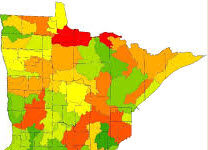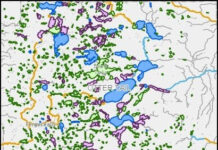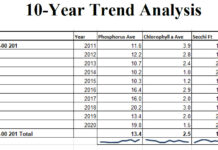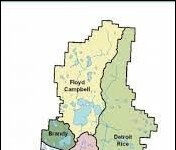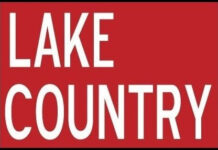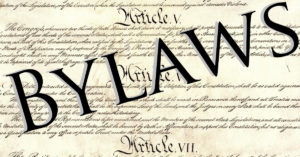Bylaws
The Members collectively approve the organizational structure, including the nature and flow of responsibilities and authorities, in the Bylaws. They provide for meetings, elections, Officers, financial controls and administrative procedures. They also lay out the form and function of delegation of responsibilities and authorities to a Board of Directors, Officers and Committees.
The Bylaws as a component of the organizational structure describe and define the Organizational Structure of the organization. It documents the delegation of authority and responsibilities from the Members, in the aggregate, to the Board of Directors, Officers and Committees. They will also include qualifications for Membership. They may include safeguards and controls the Members see fit to impose on the organization at the Member level.
Contact lakehelp2@gmail.com for an editable version
Bylaws Template
- DEFINITIONS
- Terms used in these Bylaws will have meanings as stated in the Definitions Document. Discretion of ultimate use, meaning and interpretation will be reserved by the Board of Directors. The Definitions Document will be maintained by the Board of Directors
- As used in these Bylaws words in the present tense shall include the future tense, and words used in the singular number shall include the plural number and the plural the singular. The word “shall” is mandatory and not discretionary. The word “may” is permissive. All distances, unless otherwise specified, shall be measured horizontally.
- BOARD OF DIRECTORS HANDBOOK
- Detailed descriptions, processes and procedures deferred to the Board of Directors are outlined in the Board of Directors Handbook.
- The Board will interpret, modify and otherwise manage the content of the Handbook
- ARTICLE ONE – MEMBERSHIPS
- Membership eligibility
- A requirement for Membership is that the Member be an owner of lake shore property on XXXXX Lake.
- Association fees for Membership are current.
- Member of Record
- The Association will recognize one person to represent each Membership declared the Member of Record. The Member of Record will be the single formal contact between the Membership and the Association.
- The Member of Record will be registered with the Association:
- Name
- Lake mailing address
- Primary residence mailing address
- Telephone number
- Email address
- The Email address will be used by the Association to provide the unique data key of identification of the Membership
- Where an email address is not used by the Member of Record an exception will be managed by the Association Secretary.
- Voting rights
- Only the Member of Record or authorized Proxy will be authorized to Vote on matters submitted to the Memberships for Vote.
- The President will be non-voting reserving his deciding vote for the case of a tie between the other voters.
- Transfer of Membership
- Membership in this Association is not directly transferrable. A Power of Attorney can be executed for appropriate purposes as provided for in these Bylaws.
- Membership privileges
- Privileges of Members may be modified by the Board of Directors.
- Associate Memberships
- Membership classification for Membership not technically representing a property owner but one that possesses the same appearance and role as a property owner. Interpretation of criteria for an Associate Membership and Membership acceptance is reserved by the Board.
- Membership eligibility
- ARTICLE TWO – MEETINGS OF MEMBERS
- Member Regular Meetings
- Association Annual Meeting
- The Annual Meeting of Members shall be held in a designated month of each year at such time and date as determined by the Board. The Annual Meeting shall be held for the purpose of electing Directors and the transaction of other business as may come before the Meeting. If the election of Directors is not held at the Annual Meeting for any reason the Directors shall cause the election to be held at a Member Special Meeting as soon thereafter as is convenient.
- Association Annual Meeting
- Member Special Meetings
- Special Meetings of Members may be called by the President, Board of Directors, or not less than four (4) of the Members, at a place set by the Board of Directors.
- Notice of Meetings
- Notice of meetings will be delivered to all Members of Record via Email or, if necessary, Email alternate method, not less than ten (10) nor more than thirty (30) days prior to the date set for the Meeting. The Notice will contain the purpose, location, date and time. When appropriate the Notice will be accompanied by any supporting information or materials pursuant to issues to be addressed at the Meeting.
- The Secretary will document the date, method and Notices sent to Members in Minutes of the Meeting.
- Notices may include a preliminary Agenda of Motions intended to be submitted at the Meeting for Member Vote.
- Member Meeting Quorum
- Registration of at least 10% of the current total of paid Members, minimum of four (4) Members, at any Meeting will constitute a Member Quorum. If less than a Quorum of Members is present at any meeting, a majority of the Members present may adjourn the Meeting from time to time without notice.
- Member Meetings Participation
- Regular and Special Meetings of Members are generally closed to non-Members.
- At the discretion of the Board invited visitors will be allowed at Member Meetings
- At the discretion of the Board close companions to Members are allowed to accompany Members at Member Meetings
- Only Members of Record or their Proxies are eligible to submit Motions for consideration at Member Meetings
- Only Members of Record or their Proxies are eligible to Vote on Motions submitted at Member Meetings.
- Principals along with Attorneys-In-Fact may attend Meetings but only one will be eligible to represent the Membership to submit or Vote on Motions.
- The Association by virtue of the discretion of the Board reserves the right to deny any non-Member attendance at any Regular or Special Meeting of Members.
- Member Proxy
- A Member may appoint another Member as Proxy to act on his/her behalf at any Regular or Special Meeting.
- An organization Proxy Form must be submitted, approvals obtained and all signatures affixed prior to the Meeting.
- Handling of Member proxies at Member meetings are prescribed in the Board of Directors Handbook
- Member absentee Voting
- On any matter upon which a Member Vote is required, including the election of Directors, such Vote may be conducted by alternate means in the stead of a Vote at a physical Regular or Special Meeting. When necessary and appropriate the Board of Directors may elect to call for a Vote of Members conducted by alternate means.
- Vote by mail ballot
- A ballot for a Member will be printed and sent by mail to the Members of Record
- The Member will complete the ballot and send back to the Association by mail
- Electronic Voting
- Collection and compilation of Member Votes on a question may be accomplished by Email, web polling forms, web applications or other similar method.
- The Member of Record Email address will be used to provide the identifying data key to validate the Vote.
- Where an email address is not used by the Member of Record an exception will be managed by the Association Secretary
- Vote by mail ballot
- On any matter upon which a Member Vote is required, including the election of Directors, such Vote may be conducted by alternate means in the stead of a Vote at a physical Regular or Special Meeting. When necessary and appropriate the Board of Directors may elect to call for a Vote of Members conducted by alternate means.
- Member Regular Meetings
- ARTICLE THREE – BOARD OF DIRECTORS
- General Powers
- The affairs of the Association shall be managed by its Board of Directors. The Directors shall have the power to adopt rules and regulations governing the affairs of the Association subject to the provisions of the Articles of Incorporation, Bylaws and laws of the State of Minnesota.
- Directorship qualification
- Directors need not be residents of the State of Minnesota, and must be Members of Record of the Association.
- Number
- The number of Directors shall be three (3) or such greater number as shall be determined by the Members.
- Tenure
- Directors shall be elected at the Annual Meeting and the term of office of each Director shall be for a period of one (1) year. The term of office shall begin at the first meeting of the Directors following the election thereto and shall expire at such time as new Directors have been elected and qualified for office.
- Board Regular Meetings
- A Regular Meeting of the Board of Directors shall be held without any other notice than this Bylaw, immediately before or after, and at the same place as any Regular Meeting of Members.
- Board Special Meetings
- Special Meetings of the Board of Directors may be called by or at the request of the President or any three (3) Directors at a place and time that is mutually convenient.
- Notice of Board Meetings
- Notice of meetings will be delivered to all Directors via Email, telephone or, if necessary, Email Alternate method not less than five (5) days prior to the date set for the Meeting. The Notice will contain the purpose, location, date and time. When appropriate the Notice will be accompanied by any supporting information or materials pursuant to issues to be addressed at the Meeting. Any Director may waive notice of a Meeting. The attendance of a Director at any Meeting shall constitute a waiver of notice of such Meeting, except where a Director attends a Meeting for the express purpose of objecting to the transaction of any business because the meeting is not lawfully called or convened.
- Board Meeting Quorum
- Three (3) Directors will constitute a Quorum for the transaction of business at any Meeting of the Board. If less than a Quorum of Directors is present at any meeting, a majority of the Directors present may adjourn the Meeting from time to time without notice.
- Board Decisions
- The act of a majority of Directors at which a Quorum is present shall be the act of the Board.
- Director Electronic Voting
- Collection and compilation of Director Votes on a question may be accomplished by Email, teleconference, web polling forms or web applications.
- The Director Email address will be used to provide the identifying data key to validate the Vote.
- Board Electronic Voting will be regarded as a function of a virtual Special Meeting of the Board with regard to Quorums, etc.
- The President will be non-voting reserving his deciding vote for the case of a tie between the other voters.
- General Powers
- Director
Removal
- Any Director elected by the Members may be removed by the Members by action of a Regular or Special Meeting held in part for that purpose.
- Director
Vacancies
- Any vacancy occurring in the Board of Directors or any Directorship to be filled by reason of an increase in the number of Directors shall be filled by the Board of Directors.
- A Director appointed to fill a vacancy shall serve for the unexpired term of his predecessor in office.
- A majority of the Board of Directors will have discretion to dynamically manage Director assignments and terms.
- Director
Compensation
- Directors shall receive no compensation for their services as Directors but shall be entitled to reimbursement for reasonable expenses incurred on behalf of the Association as approved by the Board. Nothing herein contained shall be construed to preclude any Director from serving the Association in any other capacity and receiving reasonable compensation for services rendered.
- ARTICLE
FOUR – OFFICERS
- Officers
- The Offices of the Corporation shall be President, Vice President, Secretary, Treasurer and such other Offices as may be elected in accordance with the provision of this Article. The Board may elect or appoint such other Offices including one or more Assistant Secretaries and one or more Assistant Treasurers as it shall deem desirable, such Officers to have authority to perform duties prescribed from time to time by the Board. No Officer may hold more than one single Office except the office of Secretary-Treasurer. Officers must first be Members of the Board to be qualified for service as an Officer.
- Officer
Election and Term of Service
- The Officers of the Corporation shall be elected annually by the Board of Directors at the first Meeting of the Board following the Annual Membership Meeting. If the election of Officers is not held at such Meeting, such election shall be held as soon thereafter as convenient. New Officers may be created and filled at any Meeting of the Board. Each Officer shall hold Office until his successor has been duly elected and qualified.
- Duties
of Officers
- The President shall possess all responsibilities and authorities prescribed by the Board by virtue of the Board of Directors Handbook.
- The Vice President shall possess all responsibilities and authorities prescribed by the Board by virtue of the Board of Directors Handbook. The Secretary shall possess all responsibilities and authorities prescribed by the Board by virtue of the Board of Directors Handbook.
- The Treasurer shall possess all responsibilities and authorities prescribed by the Board by virtue of the Board of Directors Handbook.
- Removal
of Officer
- Any Officer elected or appointed by the Board may be removed by the Board whenever in its judgement the best interests of the Corporation would be served thereby, but such removal shall be without prejudice to the contract rights, if any, of the Officer so removed.
- Officer
Vacancies
- A vacancy in any Office because of death, resignation, removal, disqualification, or otherwise shall be filled by the Board
- Officer
Powers and Duties
- The several Officers shall have such powers and shall perform such duties as may from time to time be specified in resolutions or other directives of the Board. In the absence of such specifications, each Officer shall have the powers and authority and shall perform and discharge the duties of Officers of the same title serving in non-profit corporations having the same similar general purposes and objectives as this Association.
- Officers
- ARTICLE
FIVE – COMMITTEES
- Executive
Committee
- Executive
Committee Members
- The Executive Committee shall consist of the President, Vice President, Secretary, or Treasurer and any additional Members designated by the Board
- Executive
Committee Quorum
- Three (3) Executive Committee members will constitute a Quorum
- If less than a Quorum is present at any meeting, a majority of the Committee members present may adjourn the Meeting from time to time without notice.
- Executive Committee Meetings may be called by the President or by three (3) members.
- The Executive Committee may act on behalf of the Board on any matter when the Board is not in session.
- The Minutes of Executive Committee Meetings will be distributed to all Directors on a timely basis after any Executive Committee Meeting.
- Actions of the Executive Committee will be subsequently reviewed for ratification at a Board Regular or Special Meeting called in part for that purpose.
- Executive
Committee Members
- Other
Committees
- Other Committees not having and exercising the authority of the Board in the management of the Association, including but not limited to Committees on the environment, water quality and quantity, sewage and garbage disposal, water safety, recreation and parks, police and fire protection, land use zoning and governmental affairs, may be designated by the Board.
- Other Committee members need not be officially registered as Members, Attorneys In Fact or Member Agents but must be approved and appointed by the Board and will serve at the discretion of the Board.
- Executive
Committee
- ARTICLE
SIX – CONTRACTS, CHECKS,DEPOSITS AND FUNDS
- Contracts
- Authority of Officers to enter into contracts or assume financial obligations is prescribed in the Board of Directors Handbook.
- Checks,
Drafts or Orders
- Authority for disbursement of Association funds, drafts or orders is prescribed in the Board of Directors Handbook.
- Deposits
- All funds of the Association shall be deposited from time to time to the credit of the Association in such banks, trust companies, or other depositories as the Board may select.
- Gifts
- The Directors may accept on behalf of the Association any contribution, gift, bequest, or devise for any purpose of the Association.
- Contracts
- ARTICLE
SEVEN – MEETING RULES
- All Meetings of the Association, whether of the Membership, Board or Committees shall be held and conducted in accordance with “Robert’s Rules of Order”
- ARTICLE
EIGHT – BOOKS AND RECORDS
- The Association shall keep correct and complete books and records of account and shall keep Minutes of the proceedings of its Members, Board and Executive Committee.
- All books and records of the Association may be inspected by any Member of Record, Member Agent or attorney for a Member of Record for any proper purpose at any reasonable time. The books of the Association shall be audited annually by the Board of Directors.
- ARTICLE
NINE – FISCAL YEAR
- The Fiscal year of the Association shall begin on the first day of January in each year and end on the 31st day of December each year.
- ARTICLE
TEN – MEMBERSHIP FEES
- Annual
Membership fees
- The Board shall determine from time to time the amount of annual Membership fees payable to the Association by Members of Record.
- Payment
of Membership fees
- Membership fees for each year shall be due and payable on July 1 of such year and will be delinquent if not paid by September 1 of such year. Fees of a new Member will not be prorated from the date of becoming a Member.
- Default
and termination of Membership
- When any Member of any class is in default in the payment of a Membership fee after the delinquent date, their Membership shall lapse.
- Annual
Membership fees
- ARTICLE
ELEVEN – WAIVER OF NOTICE
- Whenever any notice is required to be given under the provisions of the Minnesota Statutes Annotated or under the provisions of the Articles of Incorporation or the Bylaws of the Corporation, a waiver thereof in writing, signed by the person or persons entitled to such notice, whether before or after the time stated therein, shall be deemed equivalent to giving such notice.
- ARTICLE
TWELVE – BYLAWS
- Amendment
of Bylaws
- The process of amending or replacing Bylaws requires that a Committee be established by the Board for the purpose of creating a proposal to the Members. The Board will designate a Committee Chair to administer the activity of the Committee. All Members will be eligible and invited to participate and submit input to the Committee. The Committee will formulate a proposal for additional Amendments or Article Replacements. The proposal will be communicated to all of the Members by Meetings, Email, and/or the Association E-Newsletter. The Members will be allowed to submit input on the acceptance of the proposal to the Committee. When the Board is satisfied that all Members have had sufficient opportunity to become familiar with the proposal and understand its impact, the Board will submit a Motion at a Regular or Special Meeting of Members and pursue a Vote on the proposal. If the Vote is in support of the Motion, the Bylaws Amendments or Article Replacements will be effected
- Amendment
of Bylaws
- ARTICLE
THIRTEEN – POWER OF ATTORNEY
- An Association Member may elect to designate a Power of Attorney to represent him to the Association. Power of Attorney is prescribed in the Board of Directors . Handbook.
- ARTICLE
FOURTEEN – ELECTRONIC VOTING
- When appropriate and necessary Electronic Voting may be substituted for any vote at a Special Meeting on any question put to the Board, Committee members or NTLA Members. Electronic Voting is regarded as an action of a Virtual Special Meeting subject to interpreted provisions provided for Special Meetings in these Bylaws.
- Quorums
- Requirements for Quorums for Electronic Voting will be the same as those for Special Meetings. The total number of electronic votes received will be used to constitute a Quorum.
- A hard copy of the results of all Electronic votes will be filed and maintained in the permanent records of the Association.
- ARTICLE
FIFTEEN – DIRECTOR AND OFFICER INDEMNIFICATION
- The Association and Members shall indemnify and hold harmless any and all of its members of the Board, Officers, or former members of the Board or former Officers for errors or omissions alleged to have been committed by any such person while acting within the scope of his/her appointment as member of the Board or Officer and while acting in good faith and honesty in accordance with the best interests of the Association and Members.
- ARTICLE
SIXTEEN – ASSOCIATION COMMUNICATION
- Meetings
- The preferred method of official communication between the Association and Members will be Meetings. When and where feasible physical Meetings of groups of Members will give the opportunity for face-to-face deliberation on issues and supervision of Voting.
- Email
- Where
feasible, permitted by these Bylaws and appropriate, Email will be used for
official Notices and other official communication.
- The Email address will be used by the Association to provide a unique data key of identification of the Membership
- Where an email address is not used an exception will be managed by the Association Secretary.
- Where
feasible, permitted by these Bylaws and appropriate, Email will be used for
official Notices and other official communication.
- Audio/video
conferencing
- Where feasible, permitted by these Bylaws and appropriate, audio or audio-visual methods of communications for Meetings can be used in lieu of physical Meetings. Where appropriate requirements for notices and quorums, etc. will apply the same as physical Meetings.
- Meetings





